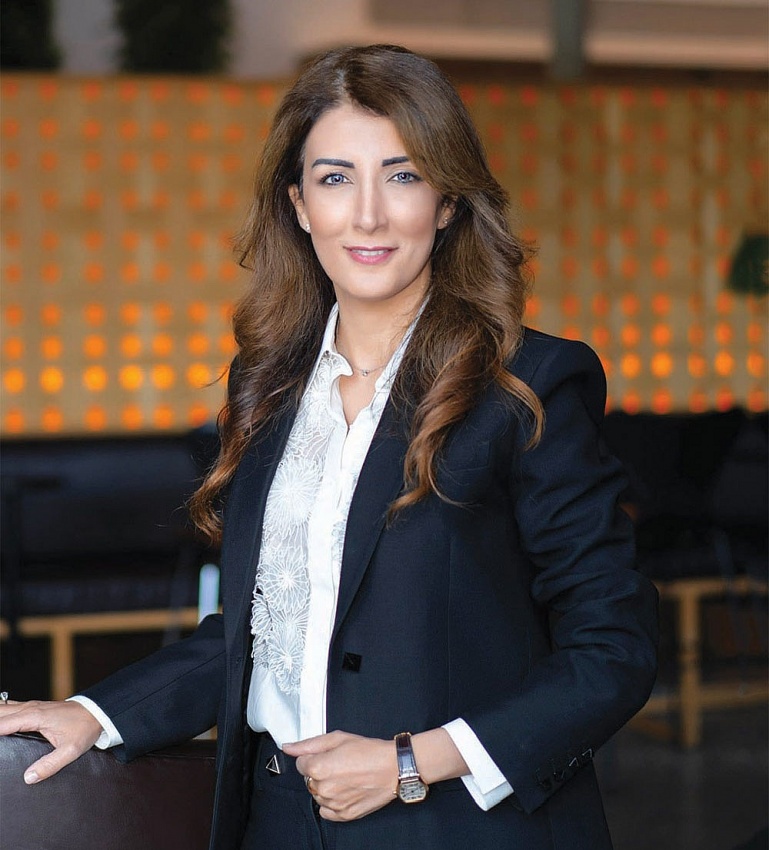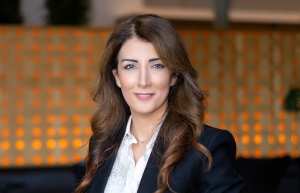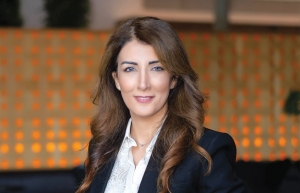Sustainability for long-term value creation
 |
| Rita Mokbel, head, Ericsson Vietnam |
Mobile technology is already one of the most inclusive technologies globally, with 8.5 billion subscriptions. The next wave of digitalisation will see the benefits of connectivity extended at scale into enterprises and broader society. Here in Vietnam, we can see that mobile broadband digital infrastructure is serving as the critical national infrastructure that is continuing to drive and creating the next wave of inclusive and sustained socioeconomic development in the country.
Mobile connectivity, AI and the cloud will be increasingly viewed as the enabling technologies to realise this next wave of digitalisation, and without mobile connectivity the other two cannot be deployed at scale. This kind of ubiquitous connectivity is critical for a low-carbon future.
5G is significantly more energy-efficient than previous generations, supporting both cost and emissions reductions. 5G networks are also playing a multiplier role in addressing climate change by reducing not only the ICT industry’s own emissions, but also enabling other sectors to transition towards a low-carbon economy.
Ericsson is driving energy-efficient network development through hardware modernisation, new software features, network energy optimisation services, and the use of AI-enabled automation and digital twin technologies.
In 2022, the company achieved both of its previous portfolio targets, and is now pursuing a target to reduce the average energy consumption of typical new radio base station sites by 40 per cent by 2025 compared to a 2021 baseline. Ericsson has continued to implement AI and machine learning solutions in its networks. This allows the service providers to operate their networks more intelligently to meet traffic demand with technology that can handle 10 times more capacity and deliver the best user experience with the lowest energy use.
An example is the Ericsson Predictive Cell Energy Management solution, which in 2023 was awarded the Network Sustainability Award for best intelligent automation solution for network sustainability and energy efficiency by FutureNet World.
Mobile broadband is one of the most cost-efficient technology options to connect society, and fixed wireless access is an efficient and scalable alternative to wired connections to create universal and meaningful connectivity, in both emerging and developed markets.
Ericsson’s most important contribution to climate change mitigation is delivering energy-efficient products and solutions that will help break the energy curve of mobile networks, reducing customer energy use, energy costs, and carbon emissions. During 2023, the company continued to improve the energy performance of its portfolio, delivering increasing mobile broadband capacity in relation to the energy consumption of its solutions. While setting an ambition to be net-zero across its value chain by 2040, Ericsson also works with suppliers to provide relevant tools and frameworks for business partners to set and achieve their own 1.5 °C-aligned targets.
While the ICT sector is responsible for only 1.4 per cent of the global carbon footprint, it has the potential to enable a 15 per cent reduction of emissions across industries by 2030 through connectivity solutions such as smart building management systems and connected electric vehicle charging infrastructure. 5G, AI, and the Internet of Things have the potential to significantly increase productivity and efficiency. As an open innovation platform, 5G will have a direct impact on a range of societal infrastructure and industry sectors including transport, manufacturing, energy utilities, and public safety, to name a few.
About 2.6 billion people – a third of the global population – do not have a fast and reliable broadband connection, due to lack of affordability and accessibility. Solutions like fixed wireless access are often the only option to deliver broadband to unserved and underserved households, businesses, and institutions in developing and developed markets.
Financial inclusion is an important driver for attaining social inclusion and enabling smaller to grow. In addition to its commercial offerings, Ericsson is actively working to ensure that meaningful connectivity supports essential societal needs, such as access to education. Together with RMIT University, the company is already delivering 5G, automation, AR/VR, blockchain training, and more to RMIT’s engineering, science, and technology students in Vietnam through the Ericsson Educate digital platform.
The networks, software, and services we deliver to our customers support the digital transformation of industry and society. With 5G, high performance will act as an engine for economic growth, a fundamental lever for fighting climate change, and an enabler of social inclusion.
 | Rita Mokbel appointed as head of Ericsson Vietnam Rita Mokbel was appointed as head of Ericsson Vietnam on November 13. Her new role will see her be responsible for driving the company’s business and overseeing its operations in Vietnam. |
 | Ericsson committed to digital transformation with 5G With Vietnam’s plan to commercialise 5G in 2024, Ericsson continues to deliver on its commitment to support Vietnam’s accelerated digital economy journey. Rita Mokbel, head of Ericsson Vietnam, talked to VIR’s Bich Thuy about the plans to make this happen. |
What the stars mean:
★ Poor ★ ★ Promising ★★★ Good ★★★★ Very good ★★★★★ Exceptional
Related Contents
Latest News
More News
- A golden time to shine within ASEAN (February 19, 2026 | 20:22)
- Vietnam’s pivotal year for advancing sustainability (February 19, 2026 | 08:44)
- Strengthening the core role of industry and trade (February 19, 2026 | 08:35)
- Future orientations for healthcare improvements (February 19, 2026 | 08:29)
- Infrastructure orientations suitable for a new chapter (February 19, 2026 | 08:15)
- Innovation breakthroughs that can elevate the nation (February 19, 2026 | 08:08)
- ABB Robotics hosts SOMA Value Provider Conference in Vietnam (February 19, 2026 | 08:00)
- Entire financial sector steps firmly into a new spring (February 17, 2026 | 13:40)
- Digital security fundamental for better and faster decision-making (February 13, 2026 | 10:50)
- Aircraft makers urge out-the-box thinking (February 13, 2026 | 10:39)

 Tag:
Tag:


















 Mobile Version
Mobile Version